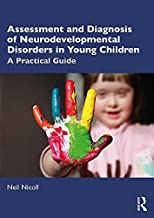Neurodevelopmental Disorder
Types. Neurodevelopmental disorders are impairments of the growth and development of the brain and/or central nervous system. A narrower use of the term refers to a disorder of brain function that affects emotion, learning ability, self-control and memory which unfolds as an individual develops and grows.
Cluster Number:
Wiki Number: PW131
Diagnosis: Neurodevelopmental Disorders
US Patients:
World Patients:
Sex Ratio:
Age Onset:
Brain Area:
Symptoms: a general title for fetal difficulties and damages to the brain and central nervous system:limits emotion, learning, control, etc.
Progression: many disorders, spectra and syndromes. Genetic testing after birth is needed to confirm their occurrences.
Causes: Romanian orphanages left social and language depriviation; genetics (Down and Fragile X Syndromes; immunie reactions; infectious
Medications: diseases; metabolic or nutrition disorders; physical traumas causing brain injuries within the placentas
Therapies:
Amazon or Library Book: Neurodevelopmental Disorders
Amazon or Library Book: Assessment and Diagnosis of Neurodevelopmental Disorders in Young Children
Click the book to link or order from Amazon.

